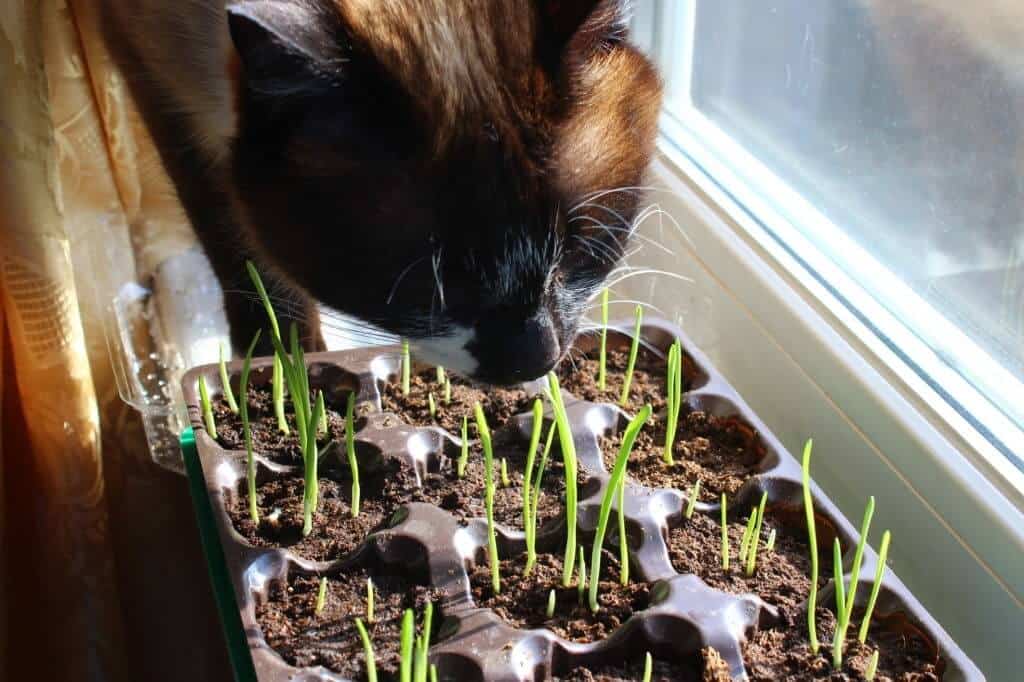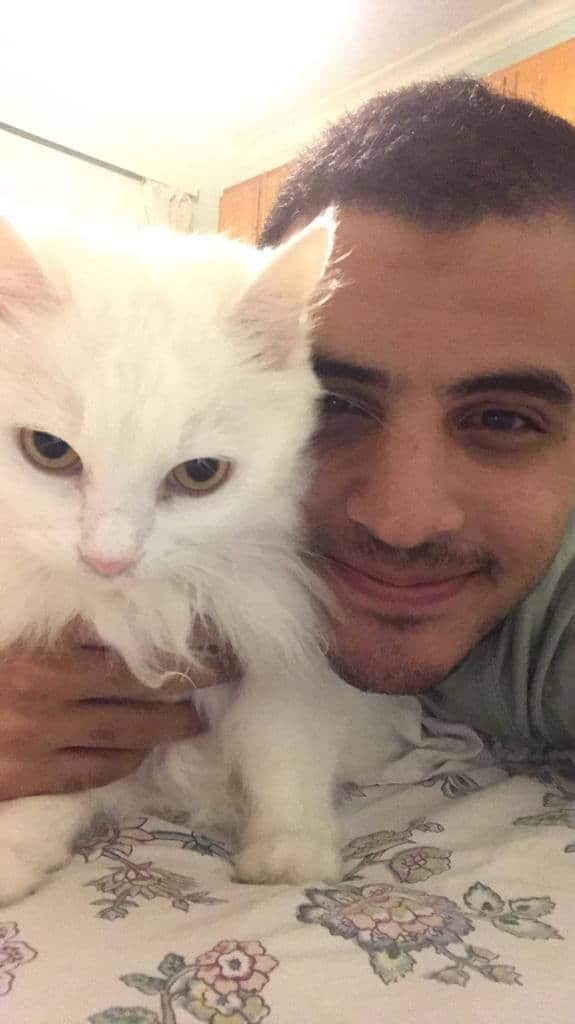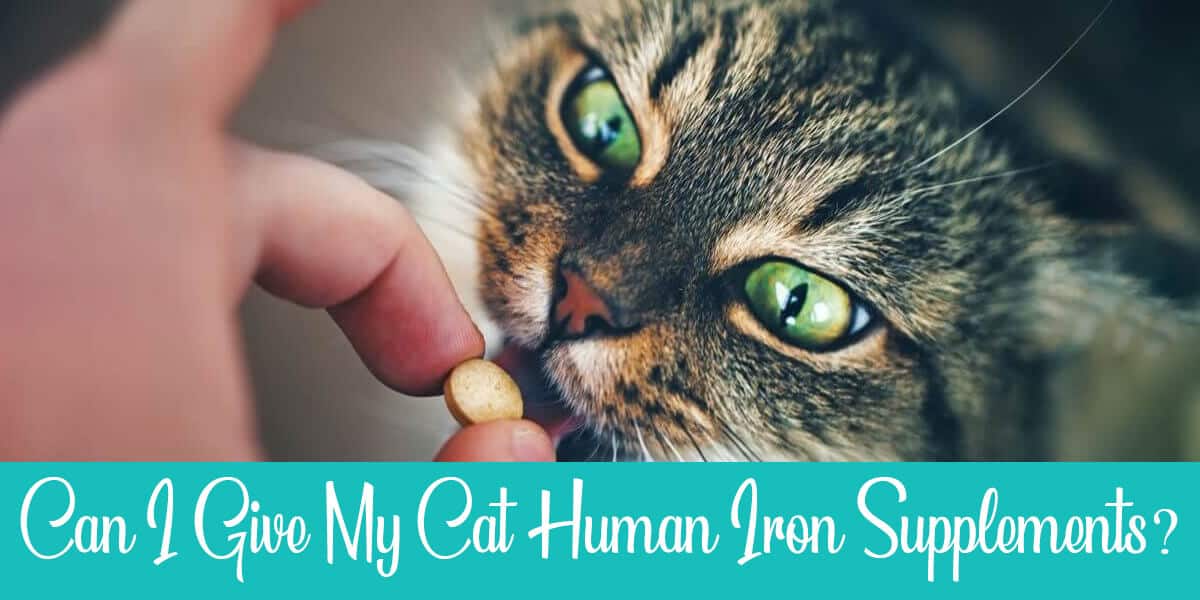Iron is essential to nearly all living organisms, including humans and cats. This mineral plays a major role in body growth and development.
The most important function of iron is being an integral part of hemoglobin, a protein present in red blood cells that transfers oxygen from the lungs to all parts of the body. The body also uses iron to make myoglobin, a protein that supplies muscles with oxygen, as well as some hormones.
Table of Contents
“Can I Give My Cat Human Iron Supplements?” – The Short Answer
No, you should never administer over-the-counter iron supplements made specifically for humans to your pet cat. These can worsen the condition and even cause toxicity due to overdose because most pet supplements are designed to provide just a portion of the daily requirement for that animal, but human supplements often contain the entire daily requirement for pets.
What to Do If Your Cat Accidentally Consumes a Human Iron Supplement
For most cats, sneaking behind your back and eating one of your vitamins that you forgot lying around won’t lead to an emergency. But consuming more than a couple can cause severe problems, so you should take the situation seriously.
Iron toxicity in cats happens after ingesting excessive amounts of soluble iron, usually in the form of iron supplements, multivitamins, or gardening products that contain iron. This poses a higher risk in households with pregnant women or nursing mothers.
Mild to moderate iron toxicity can occur when a cat consumes 20-60 mg/kg of elemental iron, whereas severe toxicity can result when a cat ingests more than 60 mg/kg of elemental iron. Unless promptly treated, ingesting over 100 mg/kg elemental iron can be fatal to a cat.
While it’s true that cats will react differently to iron toxicity depending on their age, weight, and medical history among many other factors, a quick call or visit to your vet upon consumption of human iron supplements increases the chances of a positive outcome for your feline pet.
Iron Deficiency in Cats
Iron deficiency occurs when either the dietary intake is insufficient for the body’s requirement or when there is chronic blood loss. The latter may be caused by various diseases (especially those affecting the blood), while the former is often the result of a vegetarian or home-cooked diet.
Compared to meat products (such as liver, heart, and muscles), vegetables are low in iron. Cats need a high-protein diet, so feeding your cat vegetables or a diet with low levels of protein can lead to serious health issues, including iron deficiency.
Developing iron deficiency is more common in kittens than adult cats due to the low levels of iron in milk. However, this problem generally works out as the kitten gets older and is moved to a meat-based diet.
What Can Iron Deficiency Lead to
The main health issue caused by iron deficiency in cats is anemia, which is a blood disorder that leads to an abnormal reduction in the red blood cell mass.
Red blood cell mass refers to the total number of erythrocytes, which are a type of red blood cells containing hemoglobin that’s responsible for carrying oxygen across the bloodstream and delivering it to all body parts.
In cats, chronic blood loss and improper diets are the two main causes of iron deficiency anemia. However, this disorder is very rare to occur in cats on a commercial diet.
Related: The Best 3 High Iron Cat Food Options on The Market
Symptoms of Anemia Due to Iron Deficiency in Cats

Symptoms of anemia due to iron deficiency in cats usually vary depending on several factors including the severity of anemia, the cat’s age, weight, and medical history.
That being said, some cats may not even show symptoms. Moreover, discovering that a cat suffers from anemia due to iron deficiency is often incidental.
This is why it’s important to contact your vet immediately as soon as you notice one or more of the following symptoms:
- Eating soil, rocks, litter, and other unusual food cravings
- Accelerated heart rate
- Repeated reluctance to move or exercise
- Lethargy
- Pale mucous membranes
How to Treat Anemia Due to Iron Deficiency in Cats
The proper treatment of anemia due to iron deficiency in cats may vary depending on the cause and severity of the anemia. Upon proper diagnosis, your vet will be able to set up an appropriate treatment plan for your cat based on your pet’s specific needs.
With chronic blood loss, the primary purpose of treatment is to prevent future blood loss. For milder cases of iron deficiency anemia, vets usually prescribe oral iron supplements in the form of ferrous sulfate, as well as ferrous gluconate and fumarate.
These medications promote iron absorption in the red blood cells but may also cause side effects, which can be minimized by dividing the dose into multiple smaller doses.
A common iron supplement that’s meant for cats is Pet-Tinic (Pfizer Animal Health), containing 12.5 mg of iron in a single tablespoon. For adequate iron supplementation in the case of iron deficiency, a cat will need to consume between 4 to 8 tablespoons of the product per day.
In cats that won’t tolerate oral supplementation, vets may resort to injections of iron dextran. However, these injections can be painful for animals, so oral supplementation has to be absolutely intolerable first.
If the cause of your cat’s iron deficiency anemia is an improper diet, a solution as simple as dietary changes can be enough to resolve the issue. Foods with high iron content include meat products (such as liver, heart, and muscle), as well as brewer’s yeast, wheat germ, egg yolks, and oysters.
In some severe cases of iron deficiency anemia, a cat may require a blood transfusion. Your cat will need to be hospitalized for a short while afterward to prevent adverse reactions.
Wrap Up
Iron deficiency can lead to serious issues in cats if not treated properly. That being said, don’t give in to the temptation of giving your feline pet some of your human iron supplements or you’ll be putting it at risk of iron toxicity.

I’ve been living with cats since 2008 and I can confidently say I have more feline friends than humans lol. I currently live with 5 cats in different life stages; two of them are less than one year old, one is 2-ish years old and the oldest two are 9-ish years old. I’ve developed a strong bond with cats over the years and I’m eager to share my experience through this blog. You can learn more about my cats here.

